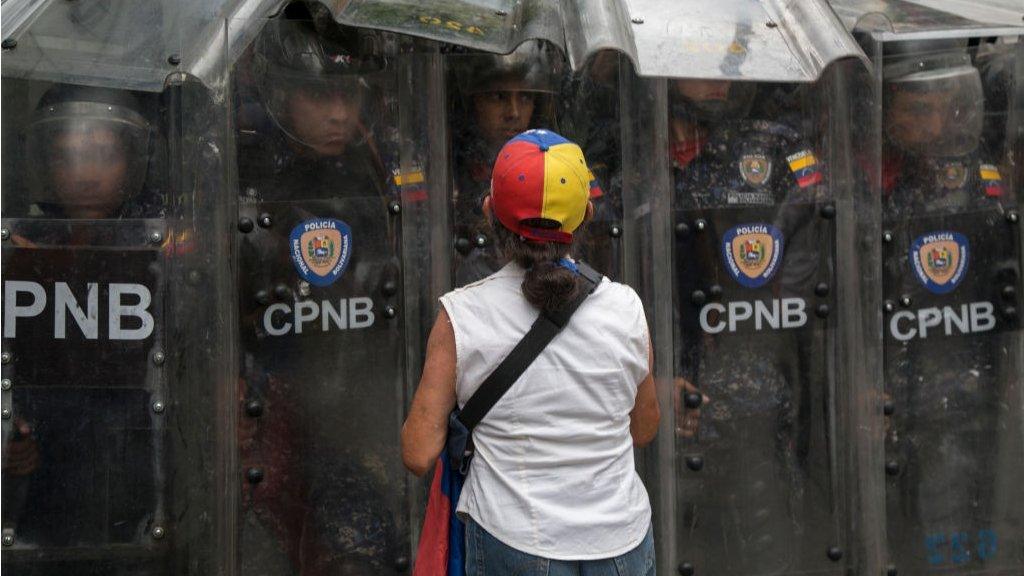Venezuela socialists win governor seats amid fraud claims
- Published
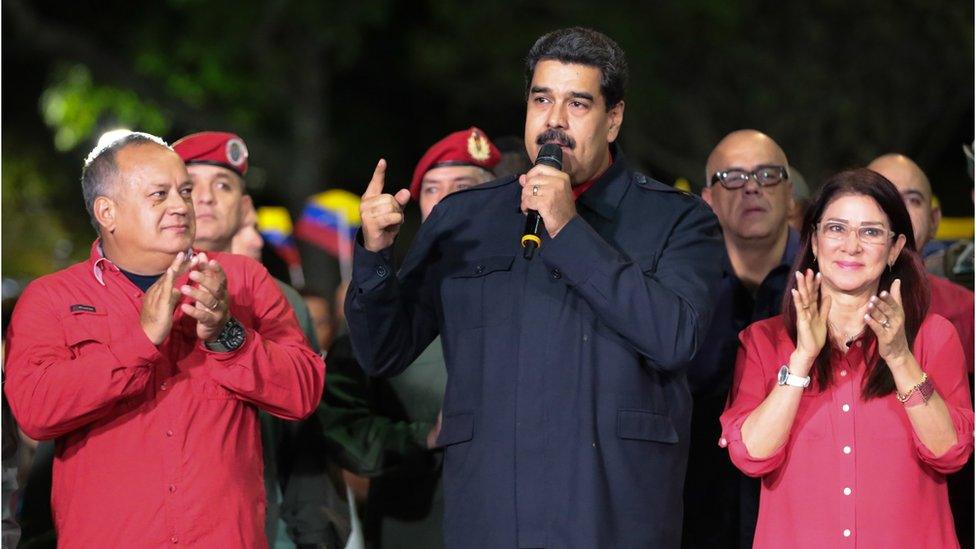
"Chavismo' is alive, in the street, and triumphant," Nicolás Maduro said after the result
Electoral authorities in Venezuela say the governing Socialist Party has won 17 of 23 state governorships in a crushing victory.
President Nicolás Maduro hailed it as a victory for Chavismo, his party's brand of socialism named after former president Hugo Chávez.
But opposition leaders alleged fraud.
The Democratic Unity Roundtable coalition has refused to recognise the result and demanded a complete audit, campaign director Gerardo Blyde said.
He said that "neither Venezuelans nor the world will swallow this fiction".
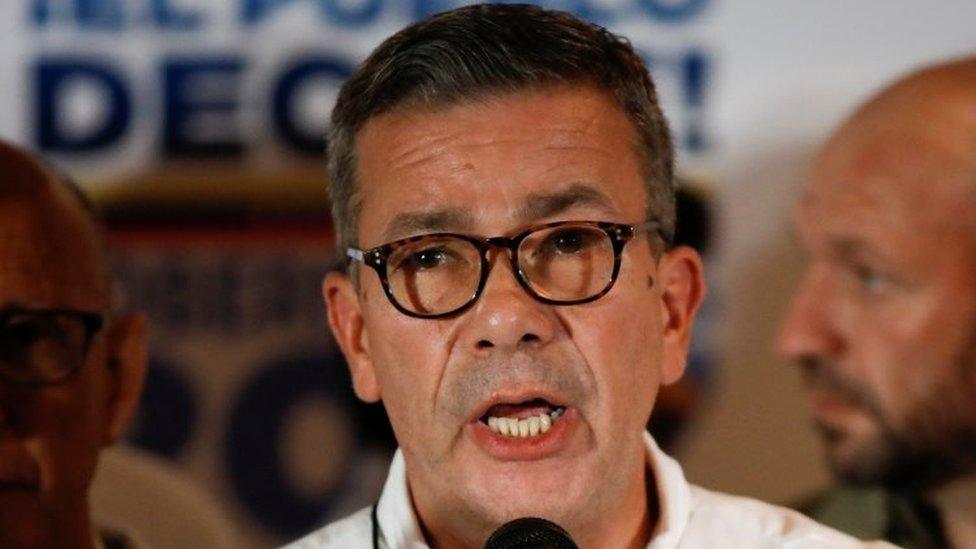
Gerardo Blyde of the opposition MUD coalition cast doubts on the results
The results were announced by the president of the National Electoral Council (CNE), Tibisay Lucena. The council is dominated by government loyalists and has been accused of pro-government bias by the opposition.
The CNE came under fire earlier this year when the company providing the voting systems for July's elections for the constituent assembly said the turn-out figures for that poll had been manipulated.
The CNE dismissed those allegations and used a different company for Sunday's vote.

More conflict ahead
Analysis by the BBC's Will Grant in Caracas
As the results came in, it was clear this would be a comprehensive victory for the government. One by one, the states were named and one by one they went to the candidates in red.
President Nicolás Maduro immediately appeared on state television, surrounded by his inner circle and members of the military. "Chavismo is back, victorious," he told them, before urging the opposition to recognise the result too.
In fact, his opponents were already calling fraud. Mr Maduro's government has only garnered around 20% support in recent polls and opposition supporters are saying the count can't have been clean.
But as jubilant Maduro supporters dance in the plazas, this result may have repercussions outside Venezuela's borders. The Trump administration is sure to side with the opposition and call this election fraudulent.
Just as the calm was beginning to return to Venezuela after months of violent street protests ended, this overwhelming government victory brings with it more uncertainty and the real possibility of further conflict ahead.

The opposition MUD coalition won in the states of Mérida and Táchira, which have been at the centre of anti-government protests, as well as in Anzoátegui, Nueva Esparta and Zulia.
While the number of states the MUD now holds has increased from three to five, the opposition coalition had expected to win at least in 18 states.
The state of Bolívar is still too close to call.
'Suspicions and doubts'
A poll conducted by private firm Datanalisis before the election suggested 45% of voters intended to vote for opposition candidates and 21% for the governing socialist party candidates.
However, another poll by the same firm had also suggested that President Maduro's popularity rose by 6 percentage points after the US imposed sanctions on him.
Other polls had suggested many voters were blaming the government for the serious food shortages and the economic crisis facing Venezuela.
"We have serious suspicions and doubts," Mr Blyde said about the results, which came in the wake of mass anti-government protests during which more than 120 people from both sides of the political divide were killed.
The former president of Costa Rica, Laura Chinchilla, who recently visited Venezuela on an invitation from the opposition, tweeted that the results were "the chronicle of a fraud foretold. They are an outrage, but they're no surprise. Dictatorships never lose".
Allow X content?
This article contains content provided by X. We ask for your permission before anything is loaded, as they may be using cookies and other technologies. You may want to read X’s cookie policy, external and privacy policy, external before accepting. To view this content choose ‘accept and continue’.
President Maduro, on the other hand, praised the results as proof that Venezuela has "the best electoral system in the world".
- Published13 October 2017

- Published26 July 2017
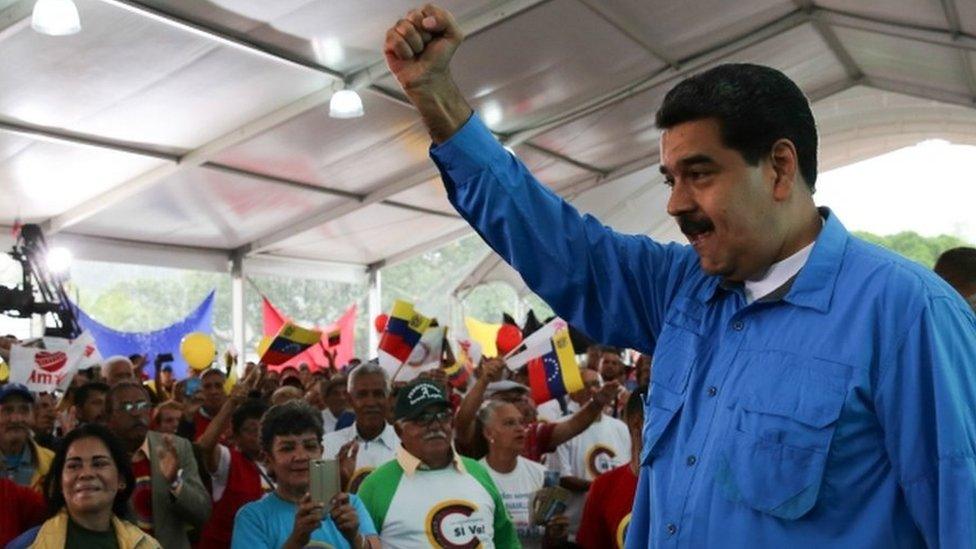
- Published25 July 2017
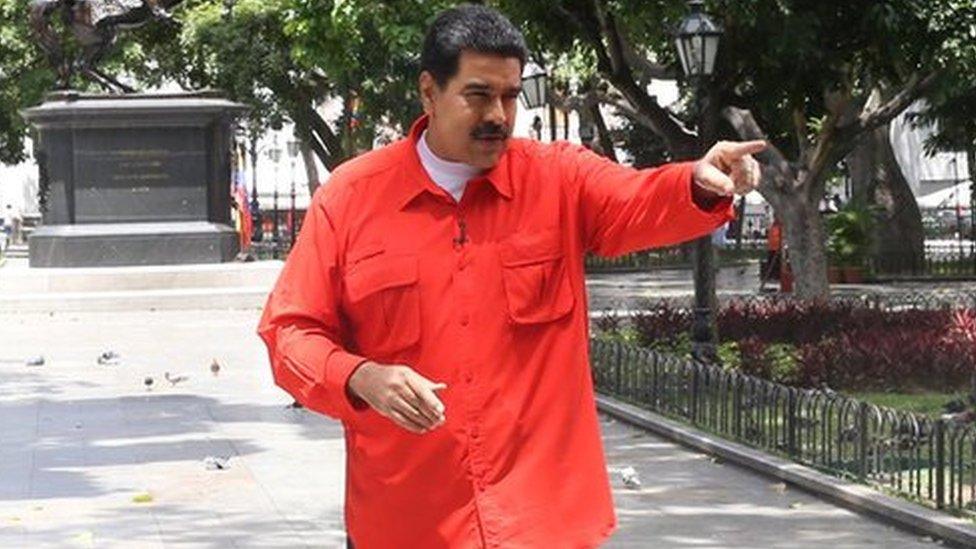
- Published19 July 2017
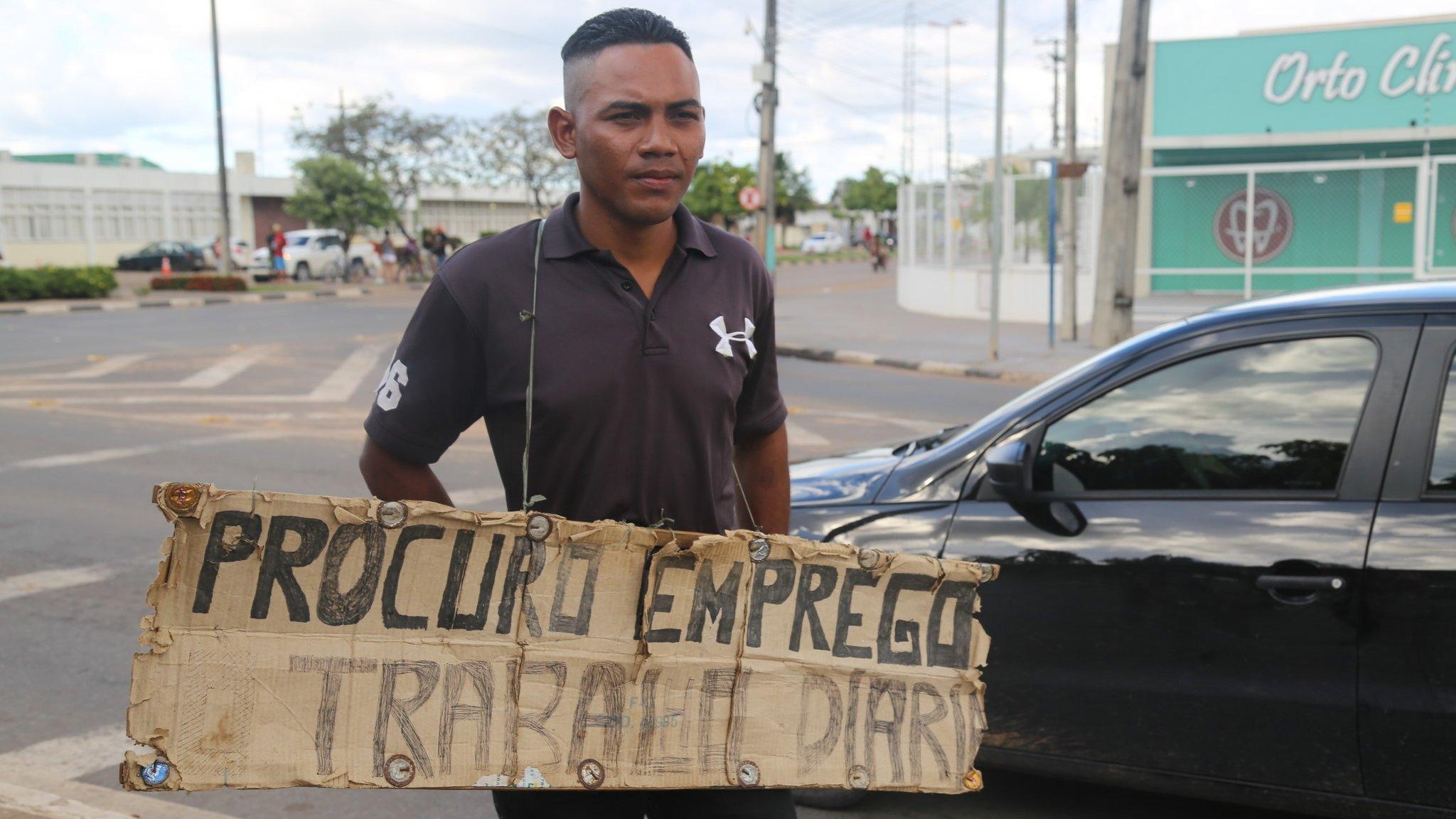
- Published29 July 2016
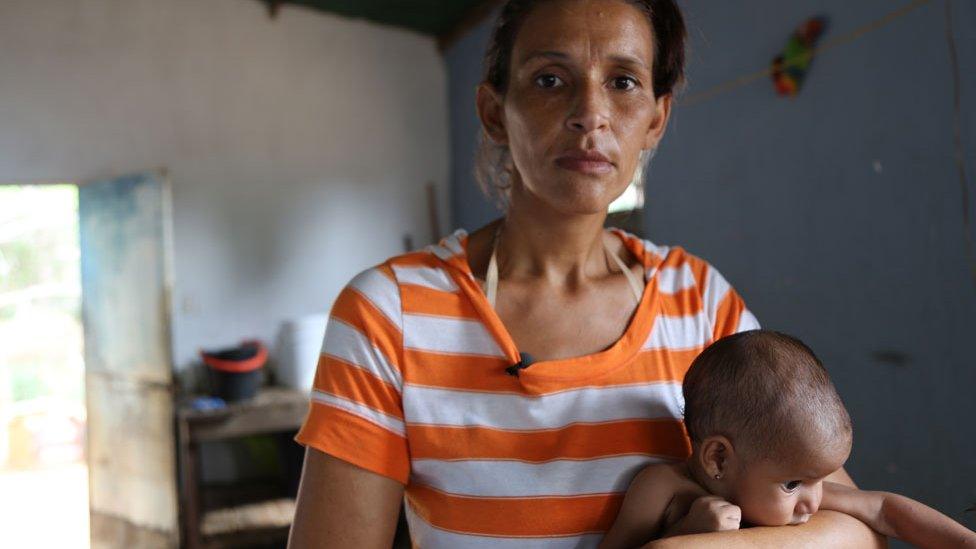
- Published12 August 2021
